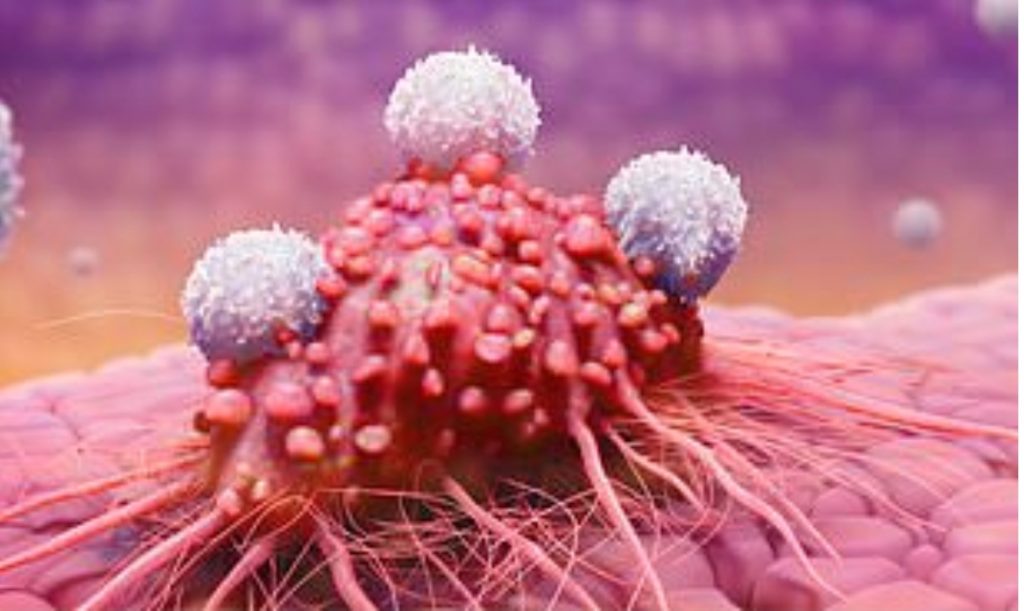
A groundbreaking treatment for cancer which uses immune cells from strangers could save millions of lives in the future, scientists believe.
Professor Adrian Hayday, group leader of the Immunosurveillance Lab at The Crick, told The Telegraph: ‘We’re not quite there yet.
‘But that’s what we’re trying now. There is every capability of getting cell banks like this established.’
Professor Hayday added that ‘even a few years ago’ there was little belief cancer could be tackled in any other way than attacking the disease itself.
But now there is a growing field of research and experimental treatments focusing on training patients’ bodies to fight off cancers by themselves.
Experts say this could become more effective than traditional treatments because bodies can adapt faster than medicine companies.
Professor Hayday described the concept as ‘radical’ but added ‘that is what’s happening’ now, with the cells not doing anything other than ramping up the immune system.
Cancer patients will begin to receive pioneering infusions of the so-called natural killer cells as early as next year, according to the researchers.
Professor Charlie Swanton, of Crick’s Cancer Evolution and Genome Instability Laboratory said: ‘The future is incredibly bright.’
He added: ‘Using the body’s own immune cells to target the tumour is elegant because tumours evolve so quickly there is no way a pharmaceutical company can keep up with it.
‘But the immune system has been evolving for over four billion years to do just that.’
Until now, the idea of injecting someone’s immune cells into another person was dogged by fears the body would reject them.
But this year, in a medical breakthrough, scientists discovered they survive well in the body and are unlike other cells.
The Crick team are now seeing impressive results, particularly because the cells aren’t being rejected by the body, as is the case with some forms of immunotherapy.
Immunotherapy drugs help the immune system work harder to find and kill cancer cells. But there can be side effects because they attack healthy cells, too.
The treatment is said to be the ultimate ‘do-it-yourself approach’ because it uses the patient’s own immune system and relies on no drugs.
In England and Wales, survival rates for ten or more years after cancer are 50 per cent, according to Cancer Research UK.
The team at The Crick want to make that figure rise to 75 per cent in the next 15 years, and they claim advances in technology will make that possible.
In the US, the five-year survival rate for all cancers combined is improving, and was 69 per cent between 2007 to 2013, according to the American Cancer Society.
haleplushearty.org
Immunotherapy drugs help the immune system work harder to find and kill cancer cells. But there can be side effects because they attack healthy cells, too.
The treatment is said to be the ultimate ‘do-it-yourself approach’ because it uses the patient’s own immune system and relies on no drugs.
In England and Wales, survival rates for ten or more years after cancer are 50 per cent, according to Cancer Research UK.
The team at The Crick want to make that figure rise to 75 per cent in the next 15 years, and they claim advances in technology will make that possible.
In the US, the five-year survival rate for all cancers combined is improving, and was 69 per cent between 2007 to 2013, according to the American Cancer Society.
haleplushearty.org

